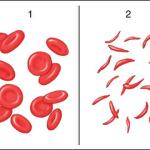I explained to Lars that this all started in 1986 when the White House published a white paper, The Coordinated Framework for Regulation of Biotechnology, which got the science right—regulation should be risk-based, not dictated by the me
genetic modification
The use of molecular techniques to create genetically engineered (GE) crops has now returned to the over-regulation of a bygone era.
Their eyes tell their sad stories as ghostly white irises give way to vacant stares. We can look at them, but they can’t look back at us.
Humans have practiced genetic modification, or genetic engineering (GE), of plants and animals through selection and breeding for more than 10,000 years. It’s called agriculture.
Humans have practiced genetic modification, or genetic engineering (GE), of plants and animals through selection and breeding for more than 10,000 years. It’s called agriculture.
I began by dismissing the term "GMO" as a meaningless pseudo-category, emphasizing that genetic modification is a seamless continuum that has been practiced for centuries.
Our conversation starts with Britain's King Charles and his past antagonism toward molecular genetic engineering.
I have a long-standing interest in sickle cell anemia, a genetic abnormality that is the scourge of approximately 100,000 Americans, primarily Black, who are afflicted with it.
How many people around the world are currently living in poverty? The World Bank reports that a little over 9%, or approximately 720 million people, are subsisting on less than US$2.15 a day.
There has been a great deal of buzz in recent years about the importance of the human microbiome; much of it focused on the gut microbiome and the importance of these mic










